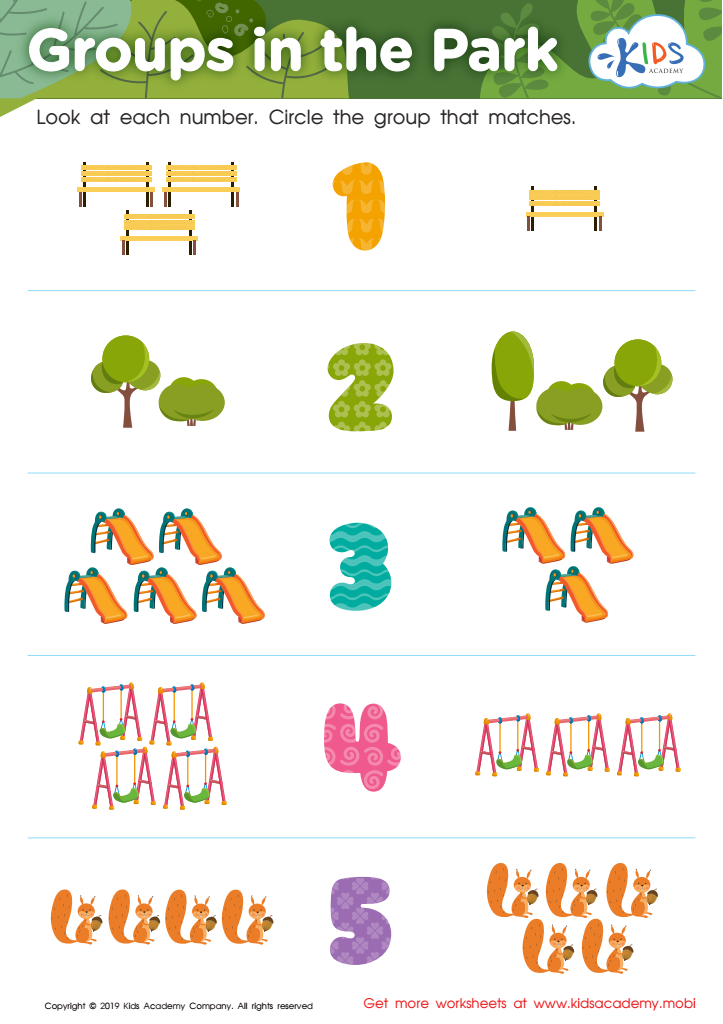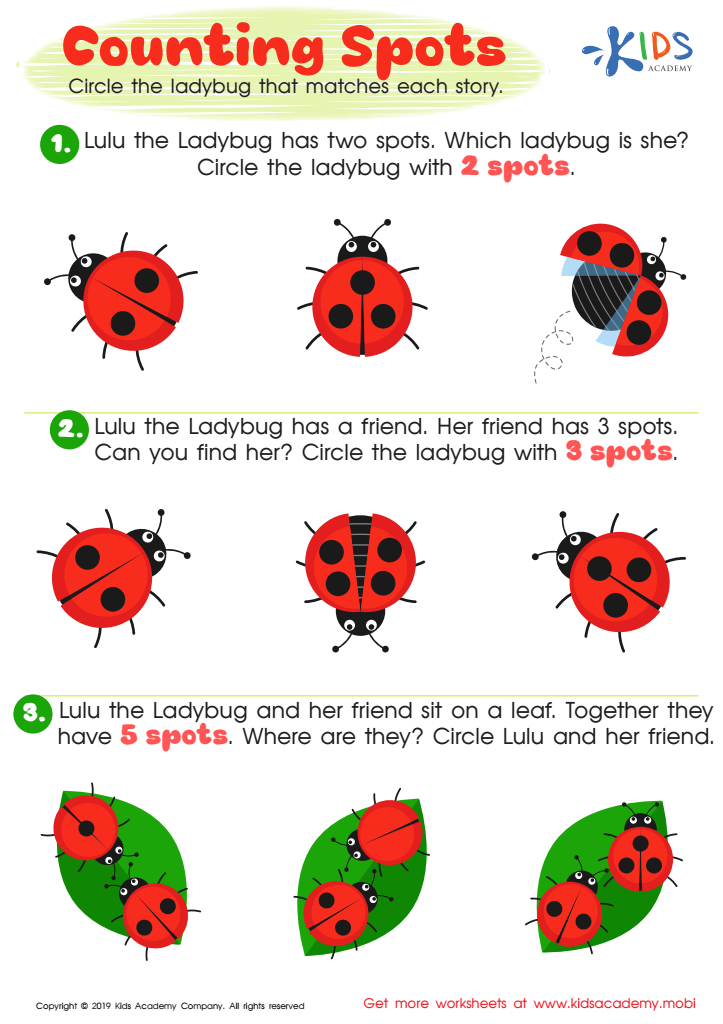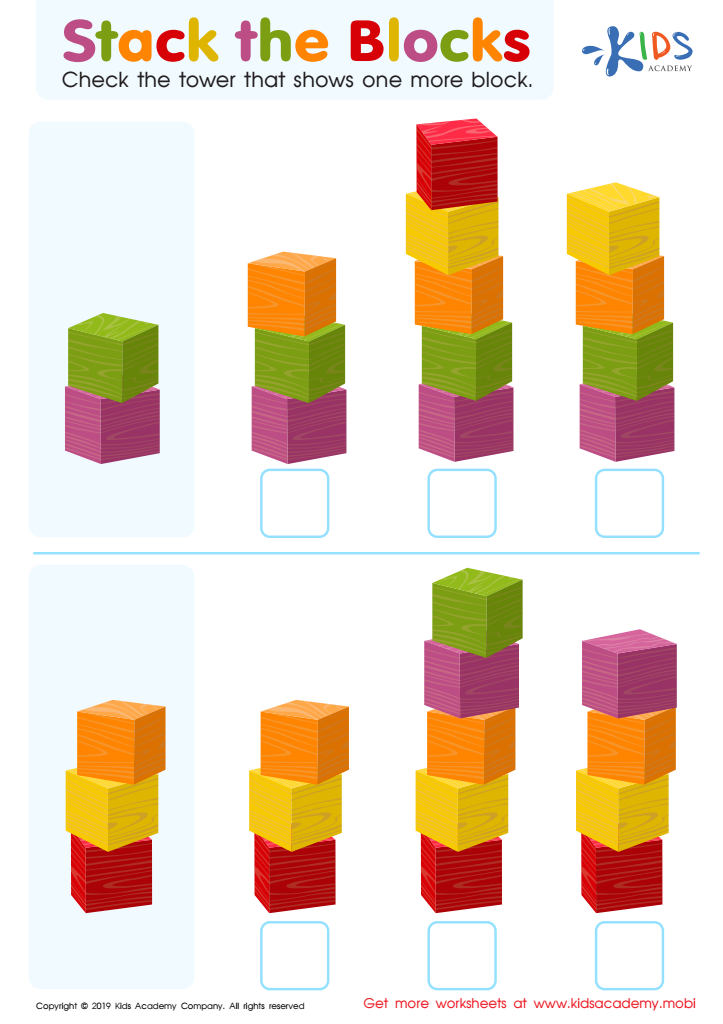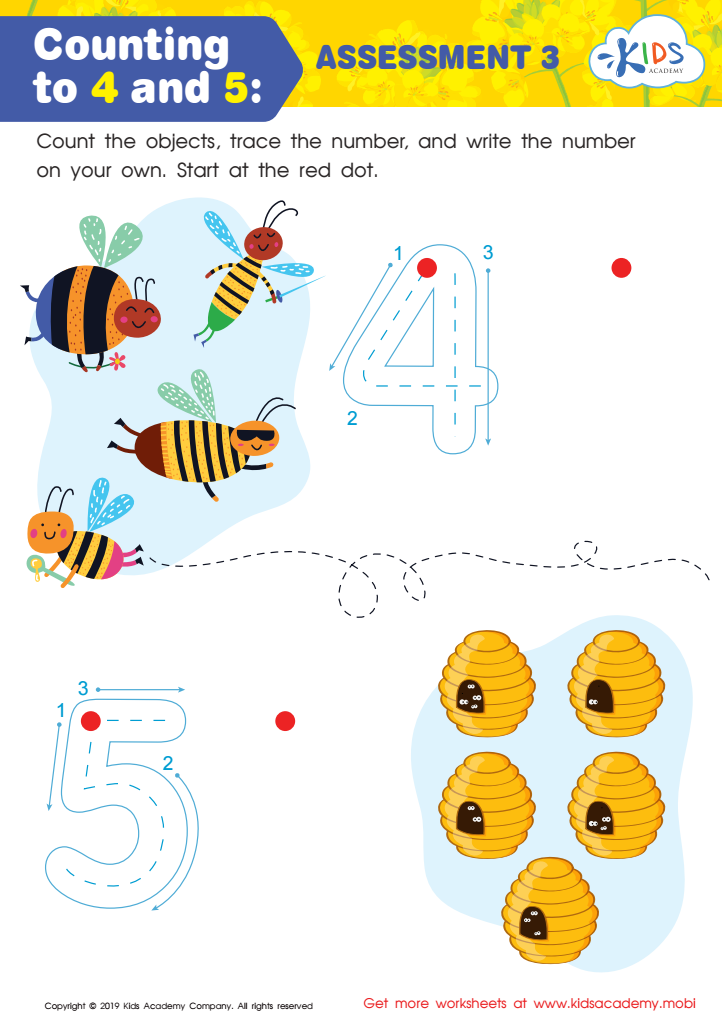Number comparison Numbers 0–10 Worksheets for Ages 3-9
4 filtered results
-
From - To
Enhance your child's numeracy skills with our Number Comparison Numbers 0–10 worksheets, designed for ages 3-9. These engaging and educational printables help young learners practice comparing numbers through fun activities and illustrations. Each worksheet encourages children to identify greater, lesser, and equal values, laying a strong foundation for future math success. Our expertly created resources are perfect for both classroom and home use, providing endless hours of productive learning and number confidence. Prepare your child for a bright mathematical future with our comprehensive, age-appropriate, and skill-building number comparison worksheets. Download now and start comparing!


Groups in the Park Worksheet


Counting Spots Worksheet


Stack the Blocks Worksheet


Counting to 4 and 5: Assessment 3 Worksheet
Parents and teachers should prioritize number comparison among kids aged 3-9 as it lays a fundamental bedrock for their mathematical understanding and broader cognitive development. Early exposure helps children grasp concepts of quantity, order, and mathematical relationships, which are essential for more advanced arithmetic skills. Through comparing numbers 0-10, kids learn to discern which quantities are larger, smaller, or equal, honing their reasoning and problem-solving abilities.
Moreover, engaging in such activities stimulates critical thinking, promotes logical reasoning, and encourages precision and attention to detail. It also aids in developing number sense—a crucial concept in early childhood education that includes understanding numbers, their magnitude, relationships, and how they are affected by operations.
Focusing on these skills during these formative years can lead to greater confidence in handling math later in life, reducing math anxiety and fostering a positive attitude towards the subject. Activities around number comparison can easily be integrated into playful contexts, making learning enjoyable and meaningful, thereby reinforcing a strong educational foundation. Thus, prioritizing number comparison for young children not only aligns with key learning milestones but also equips them with essential skills that extend beyond mathematics, aiding in overall cognitive development and academic success.
 Assign to My Students
Assign to My Students
















